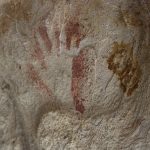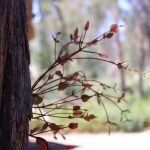
May 2024
Download Research protocol checklist PDF
Australia’s Human Research Ethics Committees (HRECs) are required to assess research applications according to National Health and Medical Research Council (NHMRC) National Statement on Ethical Conduct in Human Research (2023). These are also to be used by other bodies reviewing research.
The tables below summarise key ethical research requirements identified in the National Statement that achieve the values of the National Statement. They serve as a basic checklist to ensure that items are included in content of research protocols/proposals. The National Statement includes over 200 statements on requirements of research, including about consent, research design and conduct, governance and review, and considerations for specific populations.
Statements from the NHMRC’s Ethical conduct in research with Aboriginal and Torres Strait Islander Peoples and communities: Guidelines for researchers and stakeholders (2018) are included below; a 2-3 paragraph response to each guideline is generally expected by research reviewers.
Ethical requirements for research among people in criminal legal system custody are also included below.
We acknowledge the support of the Justice Health and Forensic Mental Health Network and the Aboriginal Health and Medical Research Council of NSW (AH&MRC) to develop this document.
Research merit and integrity
Unless proposed research has merit, and the researchers who are to carry out the research have integrity, the involvement of human participants in the research cannot be ethically justifiable. (NHMRC, 2023, p. 9)
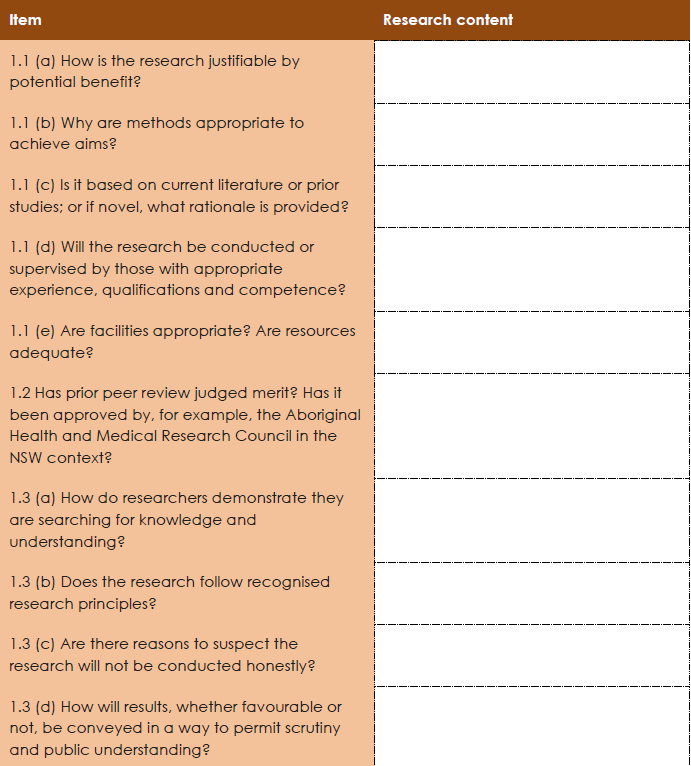
Justice
Justice involves a regard for the human sameness that each person shares with every other. Human beings have a deep need to be treated in accordance with such justice, which includes distributive justice and procedural justice. (NHMRC, 2023, p. 9)
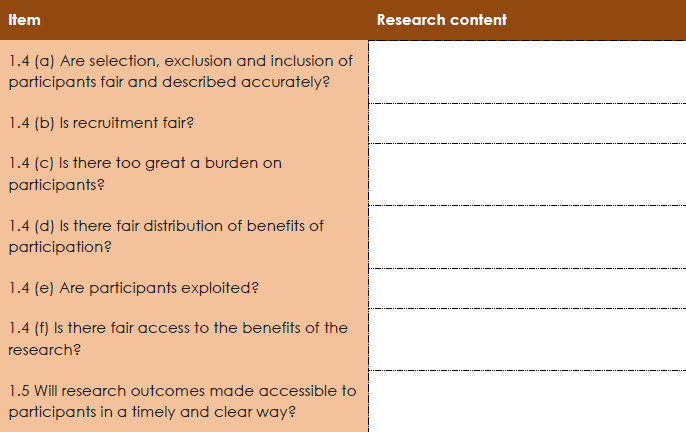
Beneficence
Researchers exercise beneficence in several ways: in assessing and taking account of the risks of harm and the potential benefits of research to participants and to the wider community; in being sensitive to the welfare and interests of people involved in their research; and in reflecting on the social and cultural implications of their work. (NHMRC, 2023, p. 9)
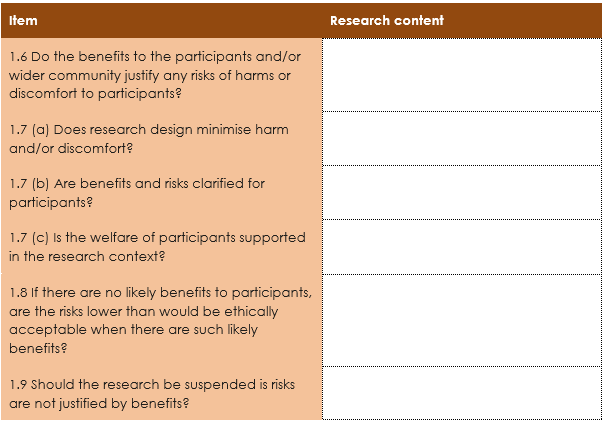
Respect
Respect for human beings is the common thread through all the discussions of ethical values. (NHMRC, 2023, p. 9)

Guidelines respecting Aboriginal and Torres Strait Islander peoples
Six core values – spirit and integrity, cultural continuity, equity, reciprocity, respect, and responsibility – are important to all Aboriginal and Torres Strait Islander peoples. They ensure all human research undertaken with Aboriginal and Torres Strait Islander people and communities:
-
respects the shared values of Aboriginal and Torres Strait Islander peoples
-
is relevant for Aboriginal and Torres Strait Islander priorities, needs and aspirations
-
develops long-term ethical relationships among researchers, institutions and sponsors
-
develops best practice ethical standards of research. (NHMRC, 2018, p. 3)
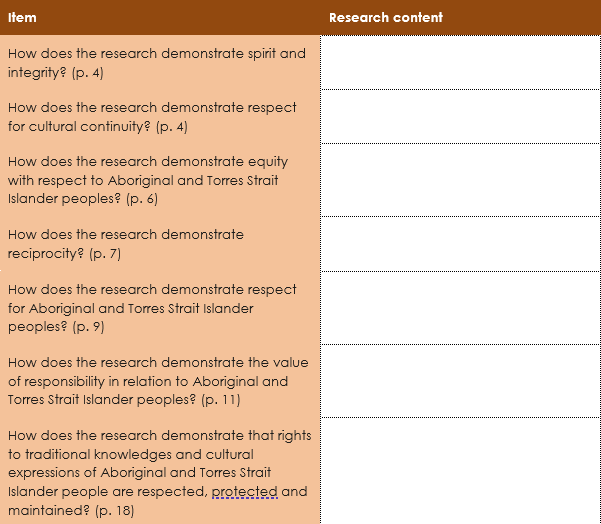
For people in custody
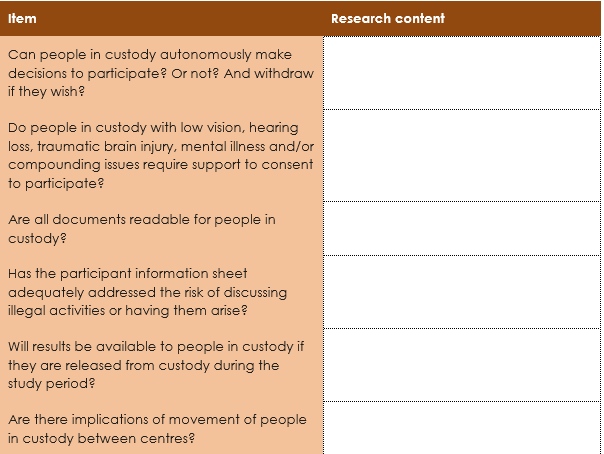
Recommended citation
Williams, M. & Ragg, M. (2023). Research protocol checklist. Yulang Indigenous Evaluation. https://yulang.com.au/starburst-indigenous-evaluations/research-protocol-checklist/
References
National Health and Medical Research Council. (2023). National Statement on Ethical Conduct in Human Research. Canberra: Commonwealth of Australia. Retrieved from https://www.nhmrc.gov.au/about-us/publications/national-statement-ethical-conduct-human-research-2023
National Health and Medical Research Council. (2018). Ethical conduct in research with Aboriginal and Torres Strait Islander Peoples and communities: Guidelines for researchers and stakeholders. Canberra: Commonwealth of Australia. Retrieved from https://www.nhmrc.gov.au/about-us/resources/ethical-conduct-research-aboriginal-and-torres-strait-islander-peoples-and-communities



